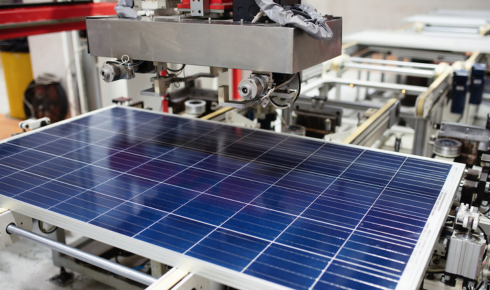As the demand for renewable energy continues to grow, solar technologies are becoming increasingly vital across residential and industrial sectors. Among the many innovative applications of solar energy, solar water heating system installations are gaining popularity for their efficiency, cost-effectiveness, and eco-friendliness. Simultaneously, large-scale solar industrial solutions are transforming how businesses manage their energy consumption and sustainability goals.
What is a Solar Water Heating System?
A solar water heating system, also known as a solar thermal system, uses sunlight to heat water for domestic, commercial, or industrial use. Unlike solar photovoltaic systems that generate electricity, these systems utilize solar collectors to absorb and transfer heat to water stored in an insulated tank. Depending on the climate and application, solar water heaters can be passive or active.
- Passive Systems rely on gravity and natural circulation of water.
- Active Systems use pumps and controllers for better efficiency and flow regulation.
These systems are ideal for locations with good sun exposure and can reduce electricity or gas bills significantly by offsetting the energy required for water heating.
Components of a Solar Water Heating System
The basic components include:
- Solar Collectors: Typically flat-plate or evacuated tube collectors installed on rooftops or open areas.
- Storage Tank: Insulated to retain heat, available in various capacities based on demand.
- Pumps and Controllers: (In active systems) to circulate water and manage temperature levels.
- Heat Exchanger: Used in indirect systems where a transfer fluid carries heat from the collector to the water.
These systems are commonly used for heating water in homes, hotels, hospitals, hostels, and even in industrial processes that require hot water.
Benefits of Using Solar Water Heaters
- Energy Savings: Reduces dependency on electricity or fuel-based water heaters, cutting down on utility bills.
- Environmentally Friendly: Emits no greenhouse gases, promoting clean energy use.
- Low Maintenance: Once installed, solar water heaters require minimal upkeep.
- Long-Term Investment: Though the initial cost may be higher than traditional systems, the long-term savings are significant.
- Government Incentives: Various state and central government schemes offer subsidies to encourage adoption.
Solar Energy in the Industrial Sector
The industrial sector is among the largest energy consumers worldwide. Traditional methods of power generation, such as coal or diesel, not only incur high costs but also contribute heavily to pollution. Solar solutions for industries are changing that narrative by offering reliable, scalable, and sustainable alternatives.
Solar industrial applications include:
- Solar PV Systems: For powering machinery, lighting, and infrastructure.
- Solar Thermal Systems: For industrial processes like drying, pre-heating, or sterilization.
- Solar Water Heaters: For canteens, cleaning operations, and other hot water needs.
- Solar Air Heating Systems: For space heating and material drying.
Industries like textiles, food processing, dairy, pharmaceuticals, and automotive manufacturing are rapidly adopting solar technology to improve efficiency and reduce carbon footprints.
Advantages of Solar in Industries
- Operational Cost Reduction: Solar energy significantly lowers energy bills over time.
- Energy Security: Reduces reliance on grid electricity and fluctuating fuel prices.
- Compliance with Environmental Norms: Meets regulatory standards and reduces emissions.
- Enhanced Brand Image: Sustainability practices attract customers and stakeholders.
- Scalability: Solar solutions can be scaled according to the specific needs of the business.
Choosing the Right Solar Partner
For both water heating systems and industrial solar applications, selecting a reliable provider is crucial. Look for companies with:
- Proven experience and portfolio.
- Quality equipment with warranties.
- Post-installation service and support.
- Transparent pricing and installation process.
- Assistance with government subsidies or net metering.
Conclusion
The shift to solar energy is not just an environmental imperative but also a strategic financial decision. Whether you’re a homeowner looking to cut down on electricity costs or an industrial business aiming for sustainability, solar solutions offer unmatched benefits. Embrace the power of the sun through efficient solar water heating systems and advanced solar industrial setups, and take a confident step toward a greener, smarter future.





